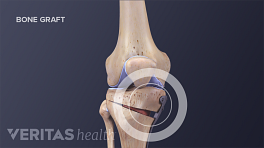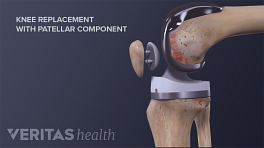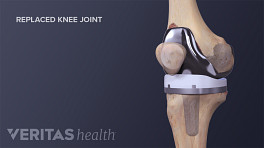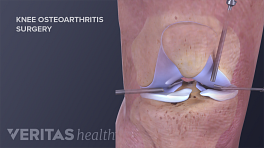When conservative care is not effective for knee osteoarthritis – and this is - it usually takes a while to get to this point, but sometimes it does get to the point where conservative care is not offering the kind of relief where a person can go about and do all the things that they want to be doing in their life and with their activities – there are surgical alternatives.
Two broad categories of surgery, one is more of an arthroscopic surgery where essentially the surgeon is going in arthroscopically to clean out the arthritis in the knee, which is a relatively small surgery. Surgery is always surgery, but it’s a relatively small surgery. And then there is a total knee replacement, where you’re basically taking the knee out and replacing it. Surgery - a total knee replacement is still a big surgery, but it does tend to work relatively or pretty well. And so, what I usually tell people is that, if we can keep the knee good, which we usually can, where people can be doing all their activities and have it not be a major factor in their life, then that’s certainly what we should be doing. At the same time, if the pain and the limitations from knee osteoarthritis are really significantly interfering with a person’s activities of daily living and impacting their daily life, then at that point it’s certainly is appropriate to at least have a conversation with a surgeon about the surgical alternatives that may be appropriate.











